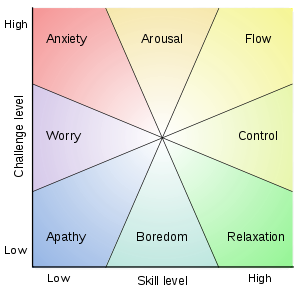I'm interested in learning more about the biological systems or hormones or parts of the brain that affect short term (<15 minutes) ability to concentrate attention on the task and be aware of the situation.
I'm particularly interested in humans who are engaged in an activity that can be perceived as threatening: martial arts, competitive video games, sports and other activities which may be considered "fight or flight", but a scenario in which the person has chosen to stay and fight.
To clarify the question further: What is involved in the ability to make decisions based on the competitive situation itself, instead of responding with pre-learned techniques and tactics? In one case, a person may be aware of what his/her opponents are doing, while in other cases the same person may "rush in blindly" and attempt to execute techniques that were learned and worked before, but will not work in the current situation.
What influences this choice of responding versus acting on prior knowledge?

